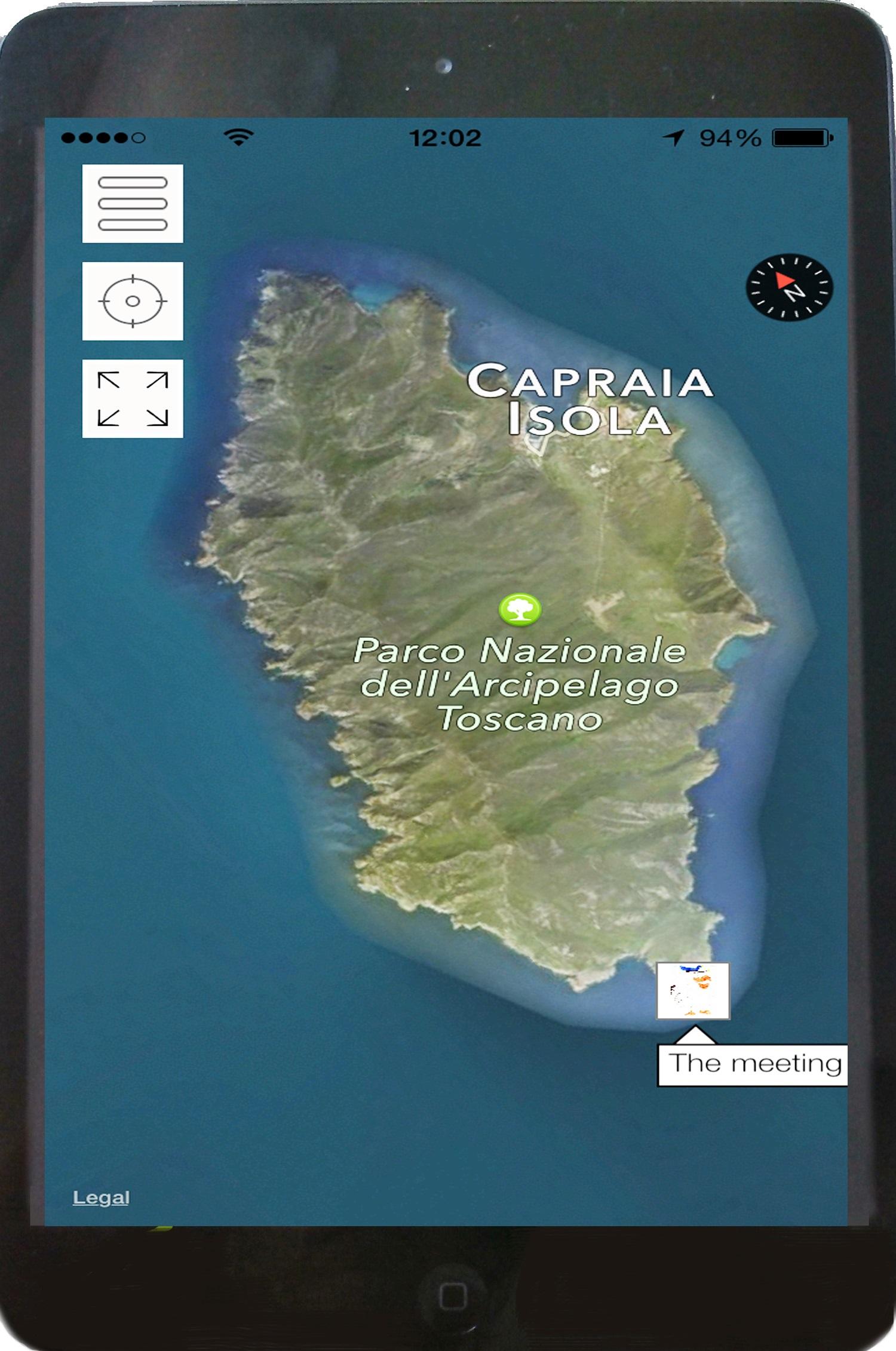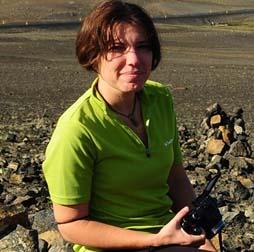Exhibitors 2016
- ARDUINO
- HOME AUTOMATION
- YOUNG MAKERS (< 18)
- FABRICATION
- FASHION & WEARABLES
- INTERNET OF THINGS
- EDUCATION
- KIDS & EDUCATION
- OPEN SOURCE
- GAMES
- RECYCLING & UPCYCLING
- ROBOTICS
- SCIENCE
- ENERGY & SUSTAINABILITY
- MUSIC & SOUND
- ARTISANS & NEW CRAFT
- 3D PRINTING
- ART
- BIOLOGY
- FOOD & AGRICULTURE
- DRONES
- WELLNESS & HEALTHCARE
- HACKS
- 3D SCANNING
- CULTURAL HERITAGE
- STEAM PUNK
- CROWDFUNDING
Location Based Games for nature conservation learning and naturalistic tourism
Nowadays kids are incredibly familiar and skilled to use Information and Communication Technologies (ICT) like computers and mobile devices. These tools are mostly used for connecting individuals to social networks, downloading music and videos, playing but also searching information and developing school tasks.
Among the technological tools available for didactic purposes, a platform for developing Location Based Games for mobile devices, has been tested for didactic purposes. Between 2014 and 2016 the I.C. Sacchetti in San Miniato, the I.C. Micali in Livorno and Capraia Island (Tuscany) and the association Attivarti.org in the frame of two European projects Involen and Raise (Erasmus+) have experimented the development of LBGs in environmental education.
The aim of these projects is raising the environmental awareness and active citizenship for nature protection through volunteering and the use of new technologies. Pupils, teachers (together with other facilitators like environmental guides) are part of a team committed to follow a learning process focused on nature protection that will bring to the creation of a LBG for the local protected area.
Location Based Games consist in games for mobile devices in which virtual and real combine together, and in which the player move in the real space, interacting with virtual but also real world. The LBG platform proposed in these projects is the open source ARIS, developed by the University of Wisconsin. ARIS allows player to interact with virtual characters in the real space, lose or get objects, collect pictures for own game inventory, answer quiz etc. Despite the variety of playful actions and tools, the greatest limitation is the possibility to play the ARIS games though only on Apple mobile devices.
Regarding the learning process, this is structured in 6 work units: 1) planning of the whole process among the group members; 2) learning the LBG platform; 3) collecting information and stories about the protected area; 4) volunteering activity in the protected area; 5) creation of the game scenario with the information and stories collected previously; 6) development of the game in the LBG platform and play testing which is essential for assessing the functionality of the game on site.
The learning process is made averagely of about 10 two hour meetings. Teachers and facilitators firstly assess the competence and skills of the team members, so that they can organise activities for smaller groups and team work when needed.
In Tuscany, the groups participating to the projects created the Aris games “A jump in the middle age” relatively to the via Francigena route in the area of San Miniato (Tuscany) and “Walking in the Fucecchio Marshes” developed by the classes of I.C. Sacchetti, the “Boar Marley’s adventure” and “Owly tales” located in the Livorno Hills Natural Park, “Aegylon game” located in Capraia, developed by the classes of I.C. Micali. Other games are based on integrated use of smartphone and computer: http://attivarti.org/valledelfarma/little-balls-on-the-hills/ and http://attivarti.org/valledelfarma/mapp_ear_ing/ developed in the Farma river valley between the provinces of Siena and Grosseto.
Among the technological tools available for didactic purposes, a platform for developing Location Based Games for mobile devices, has been tested for didactic purposes. Between 2014 and 2016 the I.C. Sacchetti in San Miniato, the I.C. Micali in Livorno and Capraia Island (Tuscany) and the association Attivarti.org in the frame of two European projects Involen and Raise (Erasmus+) have experimented the development of LBGs in environmental education.
The aim of these projects is raising the environmental awareness and active citizenship for nature protection through volunteering and the use of new technologies. Pupils, teachers (together with other facilitators like environmental guides) are part of a team committed to follow a learning process focused on nature protection that will bring to the creation of a LBG for the local protected area.
Location Based Games consist in games for mobile devices in which virtual and real combine together, and in which the player move in the real space, interacting with virtual but also real world. The LBG platform proposed in these projects is the open source ARIS, developed by the University of Wisconsin. ARIS allows player to interact with virtual characters in the real space, lose or get objects, collect pictures for own game inventory, answer quiz etc. Despite the variety of playful actions and tools, the greatest limitation is the possibility to play the ARIS games though only on Apple mobile devices.
Regarding the learning process, this is structured in 6 work units: 1) planning of the whole process among the group members; 2) learning the LBG platform; 3) collecting information and stories about the protected area; 4) volunteering activity in the protected area; 5) creation of the game scenario with the information and stories collected previously; 6) development of the game in the LBG platform and play testing which is essential for assessing the functionality of the game on site.
The learning process is made averagely of about 10 two hour meetings. Teachers and facilitators firstly assess the competence and skills of the team members, so that they can organise activities for smaller groups and team work when needed.
In Tuscany, the groups participating to the projects created the Aris games “A jump in the middle age” relatively to the via Francigena route in the area of San Miniato (Tuscany) and “Walking in the Fucecchio Marshes” developed by the classes of I.C. Sacchetti, the “Boar Marley’s adventure” and “Owly tales” located in the Livorno Hills Natural Park, “Aegylon game” located in Capraia, developed by the classes of I.C. Micali. Other games are based on integrated use of smartphone and computer: http://attivarti.org/valledelfarma/little-balls-on-the-hills/ and http://attivarti.org/valledelfarma/mapp_ear_ing/ developed in the Farma river valley between the provinces of Siena and Grosseto.
Italy
Francesca Ugolini, Luciano Massetti, Graziella Rossini, Laura Pellegrino, Antonio Raschi
Francesca Ugolini is PhD young researcher at the Institute of Biometeorology – CNR since 2008. Her main interest and scientific research is related to plants response to environment, especially in relation to water stress and pollution in natural and urban environments, and on science and environmental education. She has been managing 7 between national and international projects on related topics and developing didactic material.
A33 (pav. 6)




















































































